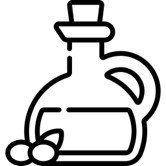When oils aren't just oils - Cannabis plant oils
We see cannabis plant extracts in foods, beauty products and medicines so it’s no wonder advertisers are struggling with how to promote their products within the rules.
Rich in essential fatty acids, beauty products formulated with hemp seed oil provide moisturising and nourishing properties for the skin.
With a mild, nutty flavour the nutrition profile with those same omega-3 and omega-6 acids make hemp seed oil a popular condiment.
When it comes to medicinal use, CBD oil (from flowers, leaves, and stalks of the hemp plant) has potential therapeutic effects.
Despite all of these having a form of oil, how they can be advertised differs greatly.
Cosmetic goods i.e. those used externally on the body (or inside the mouth) can only describe their ability to change the skin’s appearance, to cleanse it, to keep it in good condition or to protect it. Hemp seed oil can be advertised for helping with redness and inflammed-looking skin, and for it’s hydrating properties to brighten dull or ageing skin.
Cosmetic
Foods too are limited. The level of THC and CBD permitted in low-THC hemp seeds and hemp seed food products is too low to have a medicinal or psychoactive effect. The relevant Food Standard that allows the sale of hemp seeds and related food products does not permit health or nutrition claims to be made about the CBD content of these foods. CBD is anecdotally associated with various benefits but Hemp oil and foods can be described as being a good source of iron, magnesium, and vitamin E as well as those omega acids, but can not be advertised as helping to treat deficiencies or health conditions.
Foods
A therapeutic product is one that is used to prevent, diagnose or treat a disease or its symptoms. Currently in Australia the only approved cannabidiol products are prescription-only so can not be advertised to the public at all. There’s plenty of research happening, exploring new formulations and therapeutic uses with the hope an Over-the-counter formulation will eventually be available in pharmacies. Until then though, unapproved products (those not included on the Australian Register of Therapeutic Goods) can not be promoted.
Therapeutic good
It’s the marketer’s responsibility to establish which class their product falls into and which regulations apply to their individual product. This will help to establish how and to whom the product can be marketed. To protect the public from misleading or inappropriate advertising the regulatory bodies (Therapeutic Goods Administration and ACCC who enforce Australian Consumer Law) support each other should non-compliance be reported.




